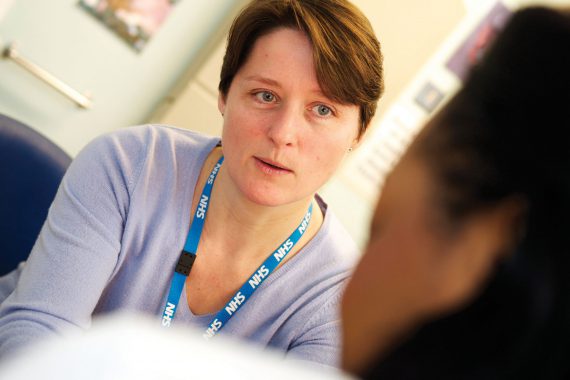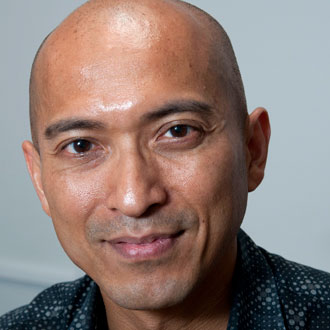Should GPs ask proactively about patients’ sexual orientation?


YES
Dr Richard Ma: We must address LGBT people’s specific needs
NHS England has recommended that sexual orientation monitoring (SOM) occurs at every face to face contact with the patient, where no record of this data already exists.[1] Why is it a contentious issue for GPs?
It is fifty years since the Sexual Offences Act decriminalised ‘homosexual acts in private’. LGBT (lesbian, gay, bisexual and trans*) charities such as Stonewall and LGBT Foundation spent decades campaigning to make statutory services recognise sexual orientation as an important dimension of people’s lives.
Some people think SOM is an ‘invasion of privacy’ and patients might be ‘offended’ but it is exactly this attitude which has allowed LGBT patients to be effectively invisible.
Far too many LGBT patients are being failed by the health service for not recognising, or making incorrect assumptions about their health needs. LGBT identity just not just about sex and relevance of SOM is not just confined to sexual health consultations. Gay and bisexual men are more likely to have mental health problems, including increased risk of self-harm and suicide. Lesbian and bisexual women are denied cervical smears when they are eligible and offered pregnancy and contraception advice when it is inappropriate.[2,3]
It is not acceptable to ‘treat everyone equally’; our patients need to be treated fairly. Equal treatment fails to recognise the special needs some patients have; we would not consider it acceptable to give vulnerable patients equal access to appointments like others. By not counting LGBT patients, we can’t even tell if they are getting fair treatment.
There is a disturbing lack of understanding about health needs of LGBT patients. A survey of health and social care staff reported only 9% received training on health needs of LGBT people; 16% admit they would feel uncomfortable asking SOM questions but less likely asking questions related to other protected characteristics.[4] It is time we created an environment where patients feel safe to disclose such information.
I agree we must make the public feel confident in how their data is used. We need to make our data secure, and demonstrate we are using it intelligently – from contextualising a person’s care and management, to service improvements. Not having any data to audit and plan services is simply not acceptable.
We have more than a decade’s experience of ‘ticking boxes’ for QOF; SOM is no more challenging. We need accurate and up to date data to comply with Data Protection Act; why not ask every patient who walks past the reception desk to check their demographic details, including sexual orientation?
We don’t bat an eyelid asking about eight other protected characteristics under the Equality Act (age, disability, gender reassignment, race, religion or belief, sex, marriage/civil partnership, and pregnancy/maternity).[5] And yet, people get flustered about SOM; perhaps this really is the last taboo.
It’s about time we normalised SOM. It is shameful to have taken this long for us to be recording sexual orientation in healthcare settings. The least we can do now is to start making our LGBT patients count.
Dr Richard Ma is a GP principal in North London and NIHR doctoral research fellow at Imperial College London
References
1. NHS England Equality and Health Inequalities Unit. Sexual Orientation Monitoring: Full Specification. NHS England; 2017
2. Hunt R, Fish J, Research S. Prescription for change – lesbian and bisexual women’s health check 2008. London: Stonewall; 2008
3. Guasp A, Sigma Research. Gay and Bisexual Men’s Health Survey. London: Stonewall; 2013
4. Somerville C, YouGov Plc. Unhealthy attitudes – the treatment of LGBT people within health and social care services. London: Stonewall; 2015
5. Equality Act 2010. UK Government; 2010.
NO
Dr Dominique Thompson: This approach is too indiscriminate
I was almost ok with it. But then I read NHS England’s new ‘standard for sexual orientation monitoring’ more closely and they lost me… at ‘face to face’. The new guidance states clearly: ‘We recommend that sexual orientation monitoring occurs at every face to face contact with the patient, where no record of this data already exists.’
This statement is for healthcare professionals to follow, and goes on to explain the seven (yes, seven) possible options that any individual can choose from, when answering the GP’s question about their sexual orientation, during their 10 minute consultation.
Let me be clear. I absolutely understand and support the case for data collection about sexual orientation in general, to ensure equality of service provision, relevant service provision, and to avoid discrimination, but a GP consultation is not a business or bank collecting data about its employees in an annual survey.
Ticking a box about sexual orientation when registering as a patient makes sense, same as businesses collecting employee’s personal data, along with race or gender information, to ensure diversity in business and to ensure appropriate service provision in general practice. This I agree with, but I cannot see how GPs and their primary care colleagues can reasonably be expected to ask face to face, at the reception desk, during a blood pressure check, on the physio’s couch, or in the GP consultation for their rheumatoid medication review, ‘which of the following options best describes how you think of yourself?’, before running through the seven options.
There is unequivocal evidence that LGBT+ populations are at higher risk of certain mental health conditions and suicide, for example. It may be completely appropriate to reference and enquire after sexual orientation in these circumstances, or during sexual health appointments. But the key here is relevance. The clinicians involved need to be confident and trained to ask such questions sensitively, and be educated in risk factors and the relevance of sexual orientation. They do not need to be asking every person they see indiscriminately, at every face to face encounter, what their sexual orientation is, if there has been no obvious recording of orientation before.
It is worth considering that young adults who may still be exploring their sexuality, when confronted by this question, if not relevant to their medical issue, could feel quite affronted, or anxious about their lack of certainty, or lacking in confidence enough to be honest about their uncertainty. Any hint of judgment or disapproval could have significant negative impact on their wellbeing.
In summary, whilst I think it is right that as a society we seek to identify all demographic groups, provide services and care that are relevant and appropriate, without judgment, and recognise high risk groups in our practice populations, I feel that this ‘sledgehammer/ nut’ approach is completely inappropriate for primary care. We should ask about sexual orientation at registration, in a tick box survey, so that people can opt to ignore it should they so wish.
Dr Dominique Thompson is a GPSI in mental health and student health specialist based in Bristol
Visit Pulse Reference for details on 140 symptoms, including easily searchable symptoms and categories, offering you a free platform to check symptoms and receive potential diagnoses during consultations.









